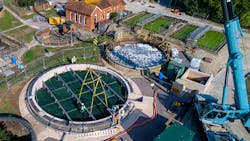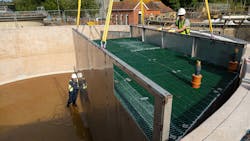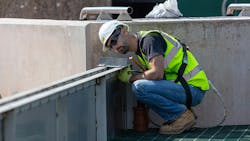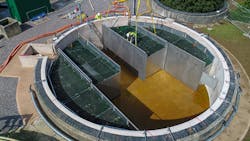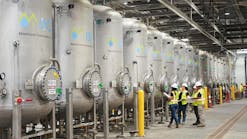Doubling Capacity
Retrofitting the circular vessel with modular WPL Hybrid-SAF cells could utilize the entirety of the vessel, whilst providing secondary biological treatment for 50% of the works' flow-to-full-treatment. By doubling the process capacity, a permanent alternative to the planned trickling filters was identified and, looking at a 20-year horizon, one that was significantly cheaper.
Off-site manufacture of the modular process technology cells meant that the onsite project delivery time would be a couple of days, rather than a possible 12-months for the civils work required for new trickling filters.
WPL's technical director Andrew Baird says, "WPL's Hybrid-SAF is a significant step forward for submerged biological treatment. Our research and development team has conceived the hydrodynamic profile underpinning the technology in a new way, which has been made possible by the use of a high specific surface area media.
"The result is that significant process efficiency advantages have been achieved, including reductions in cost, physical footprint and electricity consumption, all whilst increasing the overall process capacity of the site and improving environmental compliance. Being involved in the project at the start and working collaboratively with Wessex Water meant the best solution for the site could be identified very early on."
The first flows entered the system on 1 October 2018 and the first data was recorded on 30 October. Results showed ammonia (NH3) levels at <0.4mg/l, well within the 10mg/l consent demanded by the Environment Agency.

